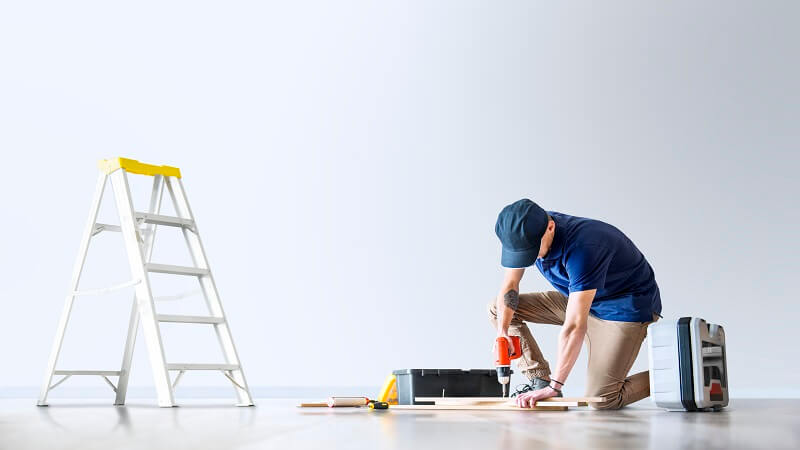Regular home maintenance is crucial to ensuring your living space remains safe, efficient, and well-preserved. Staying on top of these tasks can save you money in the long run by preventing minor issues from escalating into costly repairs. Here’s a guide to the 12 essential home maintenance tasks that every homeowner should perform regularly:
1. Check and Clean Gutters
Gutters play a vital role in directing rainwater away from your home’s foundation, walls, and roof. Inspect and clean them at least twice a year—preferably in the spring and fall. Remove leaves, twigs, and any other debris to prevent blockages that can cause water to overflow and lead to water damage.
2. Check Plumbing and Fixtures
Regularly check your plumbing system and fixtures for leaks, drips, or blockages. Look under sinks, check faucet handles, and inspect the connections to your dishwasher, washing machine, and water heater. Catching leaks early can prevent water damage and mold growth, and will help in conserving water.
3. Inspect and Maintain Roof
Your roof is your home’s first line of defense against weather damage. Inspect it annually for cracked, loose, or missing shingles and replace them as necessary. Also, look out for moss, algae, and piles of leaves that can retain moisture and cause the roof material to deteriorate.
4. Test Smoke and Carbon Monoxide Detectors
Safety first—ensure that your smoke and carbon monoxide detectors are working properly by testing them every month. Replace the batteries at least once a year or as needed, and consider replacing the units every 10 years or according to the manufacturer’s recommendations.
5. Maintain Heating and Cooling Systems
To keep your HVAC system running efficiently, replace the filters at least every three months, or more often if you have pets or allergies. Schedule an annual service with a professional to clean and maintain the system before the heating or cooling season begins.
6. Inspect and Seal Windows and Doors
Check windows and doors for drafts, leaks, and weather damage. Use weatherstripping or caulk to seal up leaks that can cause heat loss during the winter and cool air to escape in the summer. This not only increases comfort but also reduces your energy bills.
7. Clean and Inspect the Chimney and Fireplace
Before the cold season starts, have your chimney and fireplace cleaned and inspected by a professional to prevent chimney fires and carbon monoxide buildup. This should include checking for cracks, obstructions, and soot or creosote accumulation.
8. Maintain Exterior Surfaces
Inspect your home’s exterior walls, whether they be siding, brick, or stucco, looking for signs of damage, such as cracks, holes, or rot. Clean the surfaces and repaint or make repairs as necessary to protect against weather and insect damage.
9. Check Electrical System
Annually inspect your home’s electrical system for any signs of loose wiring, short circuits, or faulty outlets. Test the circuit breakers regularly and reset GFCI outlets every month to ensure they are working correctly. It’s advisable to hire a licensed electrician for a thorough inspection.
10. Care for Yard and Landscaping
Keep your yard and landscaping healthy by regularly mowing, pruning, and weeding. Make sure to trim any tree branches that hang too close to your home’s roof or electrical lines, as they can cause damage in windy conditions.
11. Test and Maintain Home Security Systems
Regularly check your home security system, including alarms and motion detectors, to ensure they are functioning properly. Review and update your emergency protocols and contact lists to keep them current.
It’s important to be aware of potential health risks associated with contaminated water in your home. Contaminated water can pose serious health risks, leading to diseases and long-term health issues. The Camp Lejeune water contamination lawsuit highlights the dangers of exposure to harmful substances in water, underscoring the need for vigilant water quality monitoring.
Conclusion
Regular home maintenance is essential for keeping your living environment secure and functioning properly. By following these twelve tasks, you can prevent major repairs, save money, and enjoy a safer, more comfortable home. Always consider consulting with professionals when necessary to help maintain your home’s value and integrity. Keep a schedule and checklist to ensure you don’t overlook these important tasks. Happy maintaining!
